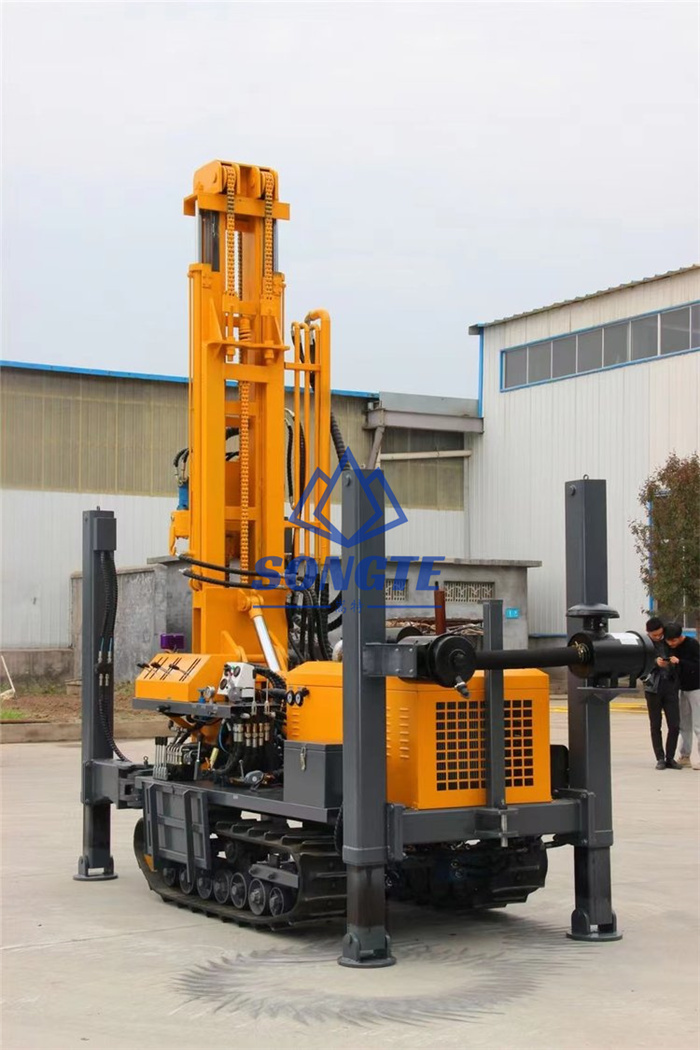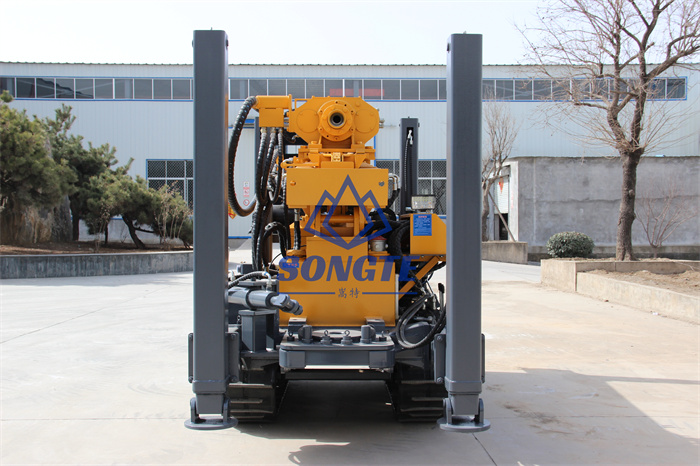Faire face à la crise de l’eau en Afrique: Le besoin urgent d’appareils de forage de puits d’eau
Introduction
Africa is a continent of stunning diversity, but one shared challenge threatens the well-being of millions of its inhabitants: the widespread water shortage crisis. Access to clean and safe drinking water remains a significant issue in many regions of Africa, with millions of people lacking access to this essential resource. To address this crisis, the deployment of a large number of water well drilling rigs is not just a necessity but a lifeline that can bring hope and improve the quality of life for countless individuals and communities.
180m Machine de forage hydraulique de puits d’eau (SW-180C)
The Water Scarcity Challenge in Africa
Africa is home to numerous countries facing severe water scarcity, and the problem is multifaceted:
Uneven Distribution: Water resources are unevenly distributed across the continent, with some regions experiencing an abundance of water while others suffer from chronic shortages. This inequity leads to stark disparities in access to clean water.
Population Growth: Africa’s population is rapidly growing, exacerbating the pressure on already scarce water resources. This demographic challenge demands innovative solutions to meet the increasing demand for water.
Climate Change: Climate change has further complicated the water crisis in Africa. Erratic rainfall patterns, prolonged droughts, and increased temperatures have disrupted traditional water sources, making access to water even more precarious.
Health Consequences: Lack of access to clean water and sanitation facilities results in devastating health consequences, with waterborne diseases such as cholera and dysentery causing widespread suffering and loss of life.
The Role of Water Well Drilling Rigs
Water well drilling rigs play a pivotal role in addressing Africa’s water crisis. These machines are designed to access underground aquifers, providing a consistent and reliable source of clean water. Here’s why they are indispensable:
Access to Clean Water: Water well drilling rigs can tap into groundwater reservoirs, which often contain high-quality, uncontaminated water. This ensures a safer and more reliable source of drinking water for communities.
Reliability and Sustainability: Unlike surface water sources that can be susceptible to climate fluctuations, groundwater from wells is generally more resilient to droughts and changing weather patterns, providing a sustainable water supply.
Community Empowerment: Access to clean water empowers communities by improving health, hygiene, and overall quality of life. It also frees up time for education and economic activities, particularly for women and children who often bear the burden of water collection.
Mitigating Waterborne Diseases: Waterborne diseases are a major health concern in many African regions. Wells can significantly reduce the risk of such diseases, saving lives and reducing healthcare costs.
The Urgent Need for Investment
Addressing Africa’s water crisis requires a coordinated effort involving governments, NGOs, and international organizations. This effort should focus on:
Investment in Infrastructure: Governments and international bodies should invest in the acquisition and maintenance of water well drilling rigs, ensuring they are strategically deployed in areas with the greatest need.
Capacity Building: Training local personnel in well drilling and maintenance is crucial to the long-term success of these initiatives. Local expertise can help sustain water supplies and create job opportunities.
Community Engagement: Engaging communities in the planning and maintenance of water wells fosters ownership and sustainability. It ensures that water resources are managed responsibly and equitably.
Monitoring and Evaluation: Regular monitoring and evaluation of water projects are essential to track progress, identify challenges, and make necessary adjustments to optimize their impact.
Conclusion
Access to clean and safe drinking water is a fundamental human right, and addressing Africa’s water crisis is a moral imperative. Water well drilling rigs represent a viable and effective solution to this urgent challenge. By prioritizing investment in these machines, fostering local expertise, and engaging communities, we can make significant strides in ensuring that all Africans have access to a sustainable and life-affirming resource: clean water. The time to act is now, as the benefits of this vital investment will ripple through generations, transforming lives and building a more equitable and prosperous future for the continent.
 Songtemachine
Songtemachine


